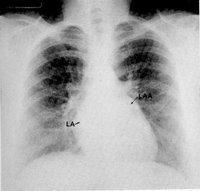
Over the years I have visited people in hospitals, rehab centers and even prisons. Over the years, I've seen thousands of people visiting patients in the hospitals I"ve staffed. All of this, of course, takes place during something called visiting hours; a special time set aside to see someone you supposedly care about but never took the time to visit before they were hospitalized or incarcerated. In any event, the behavior of visitors has alwalys interested me. I've not made a serious study of these events, but I do have some observations of the types of visitors I've noted.
1, There is the visitor who comes for themselves rather than for the patient. This type is often teary (which often upsets the patient) and constantly needs reassurance (usually from the patient) that everything will be okay. The visitor's fear of the loss of whatever the patient provides is actually greater than the patient's need for nurturing. As a result, the poor patient (who in most cases would just as soon be left alone) has to nurture the visitor, further stressing his or her's already compromised bodies.
2, Then there is the jokester, a close kin of the gabber. These two types talk constantly, the former telling irrelevant joke after irrelevant joke, the latter spewing irrelevant gossip. The patient could care less about what these two have to say (because the chest tube hurts like hell) and is, again, asked to use his already drained resources to be nice to his captures. What these two types of visitors have in common is a severe discomfort about being around sick folks. They cannot stand to see what could happen to them, yet they feel obligated to visit. Their constant patter is their form of denial of where they are, what is going on and that, yes, their friend just might die...and how the hell will they handle that (hint: with special behavior at the funeral)?
3, The dysfunctional family, on all levels, seems to be the most common. The scene is often a room jammed packed with spouses, children, uncles, cousins and--some where in there--a patient. These are often people who really need the security of the family unit. Possibly, it is the only group they have been accepted into and that by default. In any event, these people have never really ever talked with one another and haven't a clue what to talk about in this uncomfortable and unique setting. So, they all sit like zombies and watch the TV high up on the wall, however uncomfortable their necks get. Once in a while, when the discomfort of their silence exceeds that of their necks, someone will make an inane comment about the program they are all pretending to be engrossed in and there will be a furry of more inane comments which helps to decompress the discomfort in the room. Again, the poor patient is left to fiend interest in the tv and not call the nurse for morphine for the excruciating pain they are having (that would upset the family...and interupt the program).
4, The best visitors are the kids. Little ones are just glad to see mom or dad. Sure, they too need reassurance that all will be well, and they get past that in the first 5 minutes (unless they detect that their parent is in distress, in which case they shouldn't be visiting). Once assured they are not about to be orphaned, they do what kids do, and their laughter brings healing energy to all within ear shot.
It's hard for the kids to leave without taking mom or dad home with them. It is harder for all the others to depart. They don't know what closing remark is appropriate. They don't want the patient to see pity in their eyes. They just want to get to hell out of there and forget about the hospital, the smells, the cries of pain and the sight of their friend/relative/boss looking wane and fragile. They want to get away from that awful place that reminds them of what could happen to themselves. 
It's tough being an actor in a play when you don't have a script, don't know the plot and can't begin to fathom the outcome.
Paddle safe...
DS








No comments:
Post a Comment